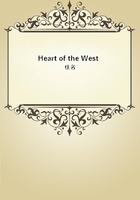
第24章 HYGEIA AT THE SOLITO(1)
If you are knowing in the chronicles of the ring you will recall to mind an event in the early 'nineties when, for a minute and sundry odd seconds, a champion and a "would-be" faced each other on the alien side of an international river. So brief a conflict had rarely imposed upon the fair promise of true sport. The reporters made what they could of it, but, divested of padding, the action was sadly fugacious.
The champion merely smote his victim, turned his back upon him, remarking, "I know what I done to dat stiff," and extended an arm like a ship's mast for his glove to be removed.
Which accounts for a trainload of extremely disgusted gentlemen in an uproar of fancy vests and neck-wear being spilled from their pullmans in San Antonio in the early morning following the fight. Which also partly accounts for the unhappy predicament in which "Cricket" McGuire found himself as he tumbled from his car and sat upon the depot platform, torn by a spasm of that hollow, racking cough so familiar to San Antonian ears. At that time, in the uncertain light of dawn, that way passed Curtis Raidler, the Nueces County cattleman--may his shadow never measure under six foot two.
The cattleman, out this early to catch the south-bound for his ranch station, stopped at the side of the distressed patron of sport, and spoke in the kindly drawl of his ilk and region, "Got it pretty bad, bud?""Cricket" McGuire, ex-feather-weight prizefighter, tout, jockey, follower of the "ponies," all-round sport, and manipulator of the gum balls and walnut shells, looked up pugnaciously at the imputation cast by "bud.""G'wan," he rasped, "telegraph pole. I didn't ring for yer."Another paroxysm wrung him, and he leaned limply against a convenient baggage truck. Raidler waited patiently, glancing around at the white hats, short overcoats, and big cigars thronging the platform. "You're from the No'th, ain't you, bud?" he asked when the other was partially recovered. "Come down to see the fight?""Fight!" snapped McGuire. "Puss-in-the-corner! 'Twas a hypodermic injection. Handed him just one like a squirt of dope, and he's asleep, and no tanbark needed in front of his residence. Fight!" He rattled a bit, coughed, and went on, hardly addressing the cattleman, but rather for the relief of voicing his troubles. "No more dead sure t'ings for me. But Rus Sage himself would have snatched at it. Five to one dat de boy from Cork wouldn't stay t'ree rounds is what I invested in. Put my last cent on, and could already smell the sawdust in dat all-night joint of Jimmy Delaney's on T'irty-seventh Street I was goin' to buy.
And den--say, telegraph pole, what a gazaboo a guy is to put his whole roll on one turn of the gaboozlum!""You're plenty right," said the big cattleman; "more 'specially when you lose. Son, you get up and light out for a hotel. You got a mighty bad cough. Had it long?""Lungs," said McGuire comprehensively. "I got it. The croaker says I'll come to time for six months longer--maybe a year if I hold my gait. I wanted to settle down and take care of myself. Dat's why Ispeculated on dat five to one perhaps. I had a t'ousand iron dollars saved up. If I winned I was goin' to buy Delaney's cafe. Who'd a t'ought dat stiff would take a nap in de foist round--say?""It's a hard deal," commented Raidler, looking down at the diminutive form of McGuire crumpled against the truck. "But you go to a hotel and rest. There's the Menger and the Maverick, and--""And the Fi'th Av'noo, and the Waldorf-Astoria," mimicked McGuire.
"Told you I went broke. I'm on de bum proper. I've got one dime left.
Maybe a trip to Europe or a sail in me private yacht would fix me up--pa-per!"He flung his dime at a newsboy, got his /Express/, propped his back against the truck, and was at once rapt in the account of his Waterloo, as expanded by the ingenious press.
Curtis Raidler interrogated an enormous gold watch, and laid his hand on McGuire's shoulder.
"Come on, bud," he said. "We got three minutes to catch the train."Sarcasm seemed to be McGuire's vein.
"You ain't seen me cash in any chips or call a turn since I told you Iwas broke, a minute ago, have you? Friend, chase yourself away.""You're going down to my ranch," said the cattleman, "and stay till you get well. Six months'll fix you good as new." He lifted McGuire with one hand, and half-dragged him in the direction of the train.
"What about the money?" said McGuire, struggling weakly to escape.
"Money for what?" asked Raidler, puzzled. They eyed each other, not understanding, for they touched only as at the gear of bevelled cog-wheels--at right angles, and moving upon different axes.
Passengers on the south-bound saw them seated together, and wondered at the conflux of two such antipodes. McGuire was five feet one, with a countenance belonging to either Yokohama or Dublin. Bright-beady of eye, bony of cheek and jaw, scarred, toughened, broken and reknit, indestructible, grisly, gladiatorial as a hornet, he was a type neither new nor unfamiliar. Raidler was the product of a different soil. Six feet two in height, miles broad, and no deeper than a crystal brook, he represented the union of the West and South. Few accurate pictures of his kind have been made, for art galleries are so small and the mutoscope is as yet unknown in Texas. After all, the only possible medium of portrayal of Raidler's kind would be the fresco--something high and simple and cool and unframed.
They were rolling southward on the International. The timber was huddling into little, dense green motts at rare distances before the inundation of the downright, vert prairies. This was the land of the ranches; the domain of the kings of the kine.